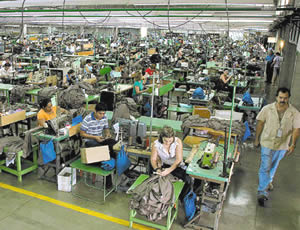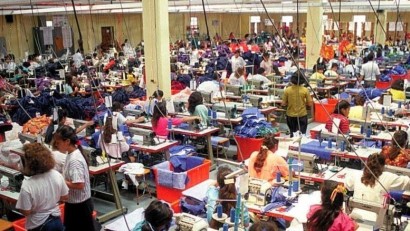
Maquiladoras and Gender Inequality
Unethical gender bias are a common occurrence within the maquiladoras industry. One can find that the majority of maquiladora’s workforce is comprise exclusively by women. Supervisory positions are mostly reserve for men, and women often would be the subject of harassment and unfair treatment. Unlike in the United State, Mexico does not require maquiladoras to provide medical care nor healthcare to its workers. In the event that a female worker suffers an injury at the job, she is given the option to leave without pay or continue to work without medical attention. Mexico’s patriarchal history has been the callus of women progress and equality rights. The position as the head of household that males have occupied since early settlements have learned to be hard to shake off. Leaving women to occupy secondary positions. Foreign industries take full advantage of Mexico’s patriarchal culture, it is extremely profitable due to the low wages offered to women. Consider the weaker sex, they have been limited to unskilled low paying jobs. Maquiladoras prefer them over men, believing women are less likely to report unfair treatment, harassment, or abuse for fear of retaliation or removal. Kathryn Kopinak in her article, Gender as a Vehicle for the Subordination of Women Maquiladora Workers in Mexico (Abstract 25) analyses literature that shows a division on maquiladora’s role in regards to women workers, in order to find if arguments that claim that capital takes advantage of Mexico’s patriarchy to exploit women have merit. One of the arguments she finds is that of “critics” which agree with the premises that foreign capital takes advantage of Mexican Patriarchy to exploit women. In their article Gender and the Environment (Abstract 3) the authors, Dianne Rocheleau et. al. presents the notion that gender roles have a direct effect on our environment. The authors present scenarios in which it is deducted that the division on hierarchical roles between man and women, results in the lack of access to extensive resources. The working conditions that women are subjected to have increased the decline in women’s health within the area. The treatment of women within the Maquiladora industry has been a source of debate between government and women’s rights groups. While women’s rights groups claim unfair treatment targeting women and demand stricter regulations reform, the government stand by its decision to encourage the expansion of maquiladoras and claims that women are benefited by them due to the production of job stability and the ability to earn wages that would in term render them self sufficient (Mungaray, np). Mexico’s deeply embedded notions about masculinity and femininity have influenced gender roles within the Maquiladora Industry, resulting in inequality and unfair treatment for women (Altha J.Cravey, 9-10) This has created protests and discontent among groups seeking fair and safe labor practices as well as gender equality. In response to protest from environmental groups demanding the implementation of eco-friendly materials and better procedures, some maquiladoras agreed to strengthen their organizational structures to support environmental protection. However, in spite of some adjustment in procedures the changes have not been sufficient to make significant impact to relive the environment of pollutants and degradation.

